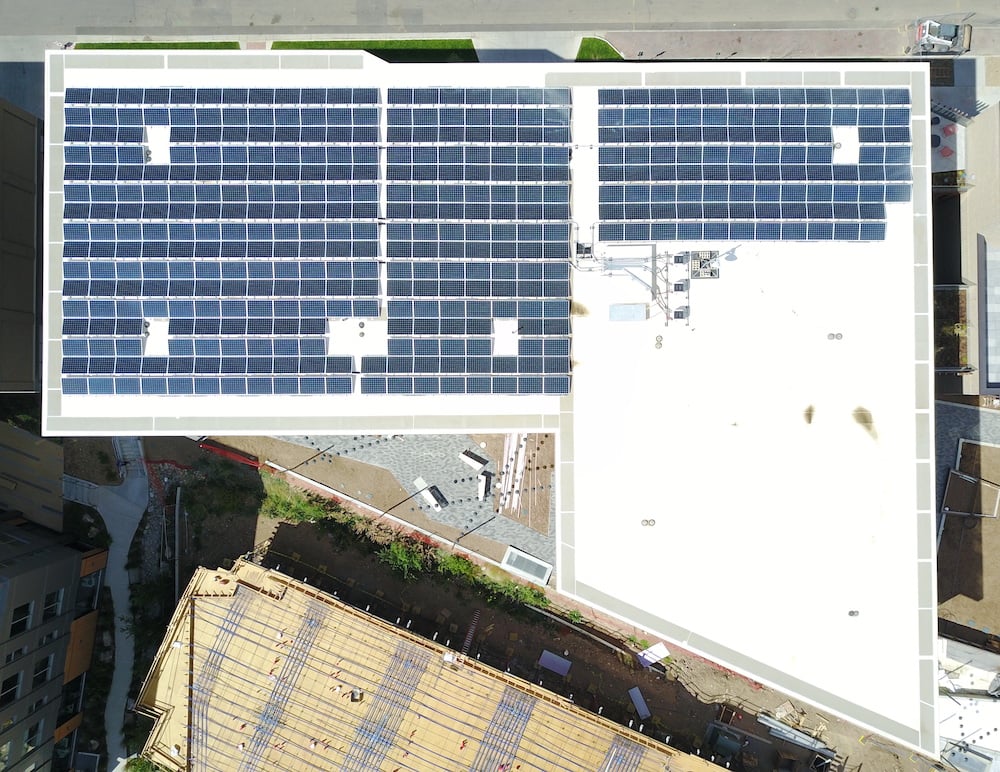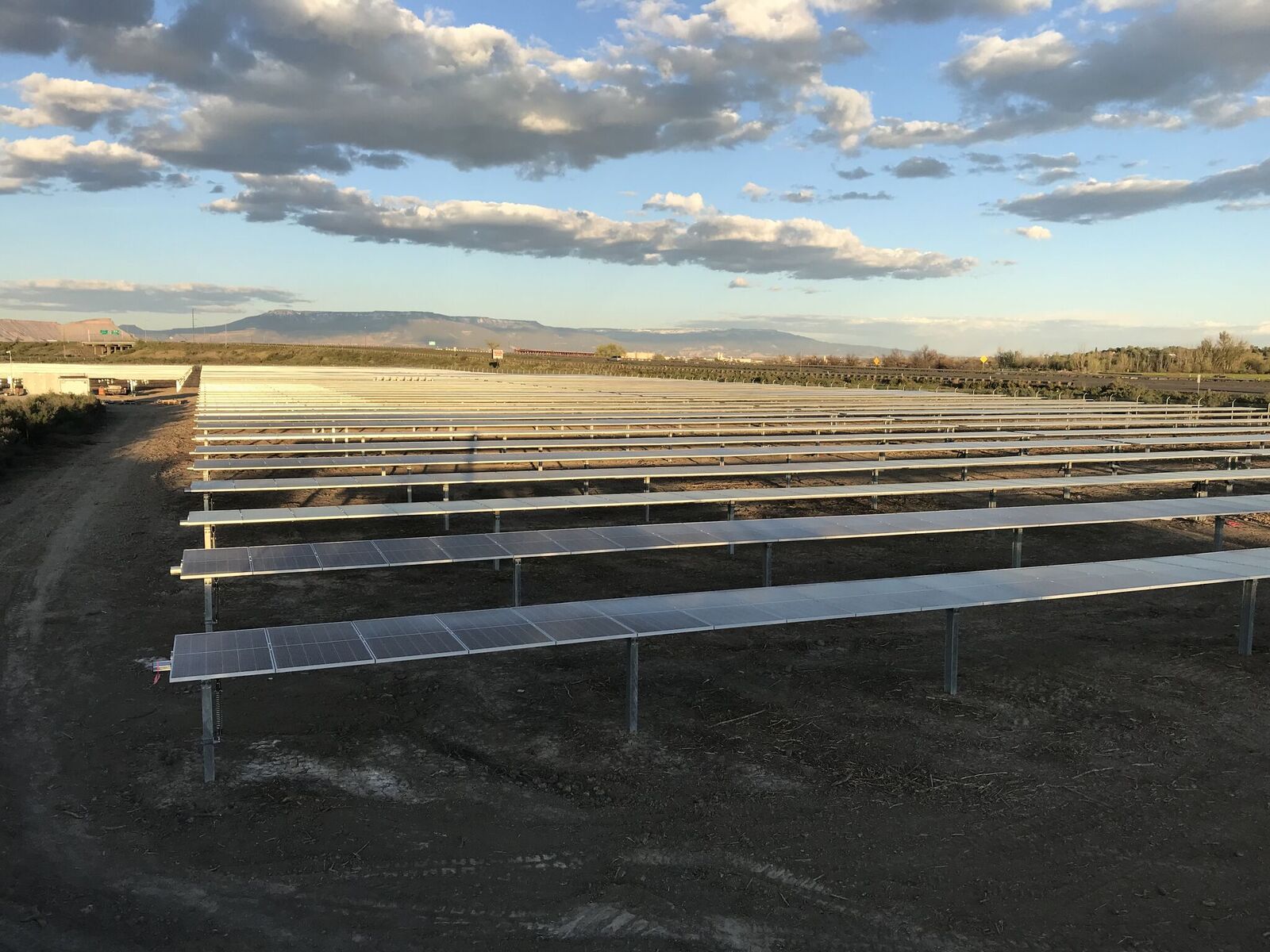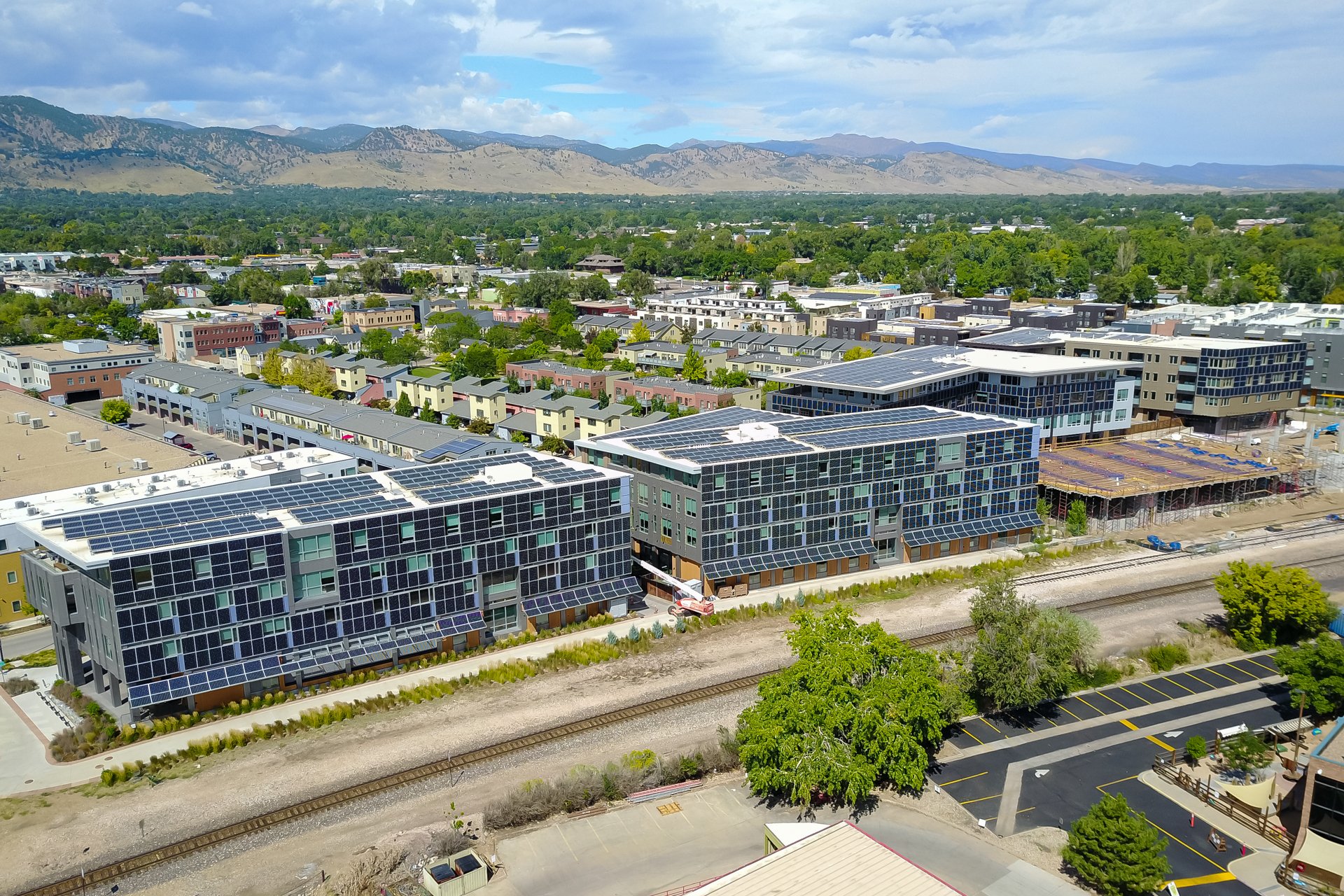From Sunlight to Savings: What Your Sustainability Team Should Know
August 28, 2023

Adding a solar array to your facility offers numerous economic benefits. By leveraging renewable energy solutions, organizations can generate savings and gain a competitive advantage, attracting new investors and loyal customers keen to support sustainable brands. However, to effectively drive decarbonization efforts, all key stakeholders must be aligned and aware of these long-term benefits.
Recognizing that installing solar energy is the right move for your business is a great first step. Still, before engaging with a solar developer, portfolio managers should clearly understand their sustainability goals, budget, and the unique structural constraints of their facilities. Adequately preparing before kicking off these conversations will ensure you find a trusted and experienced partner who can tailor renewable energy solutions to your specific needs, inevitably maximizing ROI.
Discussing Budgets and Maximizing Financial Benefits
Before engaging with a solar developer, it is essential to have a clear understanding of your budget and financial goals.
This enables the developer to identify the optimal financing method for your needs. Onsite solar solutions, regardless of the chosen payment approach, offer long-term financial benefits such as reduced operational costs and protection against energy price volatility. However, it is important to consider the pros and cons of each financing option (power purchase agreements (PPAs), solar leases, and cash loans).
Paying for solar arrays out-of-pocket or with a cash loan often yields the highest lifetime returns. While this requires an upfront investment, it enables you to leverage federal and state solar incentives, substantially reducing the project's net cost. If a direct purchase is not feasible for your company, PPAs and solar leases are excellent alternatives.
For your initial meeting with a solar developer, it is best practice to come prepared with the following:
- a rough budget
- a comprehensive assessment of your current energy portfolio
- a detailed analysis of your energy consumption.
This information empowers the developer to better understand and address any gaps or areas for improvement when designing your solar energy project.
Evaluating Locations and Overcoming Installation Challenges
When determining the ideal partner for your solar energy portfolio, the location of your facilities plays a crucial role. For instance, organizations with a national footprint will be better off working with a national solar developer, like Pivot Energy, who is well-versed in navigating all regional solar incentives.
Before your first meeting with a solar developer, assess any potential physical obstacles that may complicate the installation process. A seasoned solar developer can assist you in navigating these challenges. It is worth noting that there are several possibilities when it comes to placing a solar array on your property; the most common options are rooftop solar, ground-mounted solar, or solar carports. It is best to request that the developer share relevant project examples and explain how they plan to circumnavigate any hurdles.
However, if an onsite installation is not feasible at a particular property – perhaps you rent the space, the area is shaded, or the rooftop is otherwise unsuitable for solar – then the right solar developer will be able to help you access one of the many offsite renewable energy solutions: community solar subscriptions, virtual PPAs, solar renewable energy certificates, etc.
Boosting Reputation, Profitability, and Stakeholder Engagement
The ideal decarbonization partner will help you publicize your company’s commitment to the environment, which can benefit your bottom line and motivate employees and stakeholders to be more dedicated. Executing a well-thought-out marketing strategy can also elevate your company’s standing in relation to competitors.
Consumers and stakeholders increasingly prioritize sustainable practices and are often inclined to pay more to support businesses that demonstrate a genuine commitment to reducing carbon emissions and overall environmental impact. According to the World Economic Forum, there is a strong correlation between organizations that are leading the charge on climate initiatives with profitability, customer loyalty, and attracting investors and talented employees.
Reducing your carbon footprint – rather than greenwashing – can help you access cheaper capital and long-term savings. Savvy investors recognize the value of implementing sustainable practices that result in direct cost savings and promote a more engaged and motivated workforce.
Note: choosing to collaborate with a Benefit Corporation not only enhances your reputation, but also streamlines the background research process, ensuring that you’re working with a trustworthy and reliable entity.
Getting Started
Reducing your carbon footprint is imperative to long-term success, so take the time to garner internal support to prevent future disagreements over how your business should reduce its greenhouse gas emissions. Before engaging with solar developers, a little preparation and forethought will help you choose a strong professional vendor with industry experience and specialized expertise.
If you’re ready to begin the conversation, Pivot Energy is more than willing to help simplify the process, maximize benefits, and customize a solar energy system tailored to your unique requirements. Contact us today to learn more.


